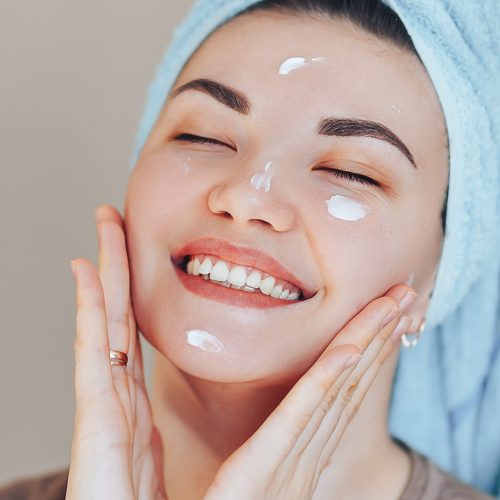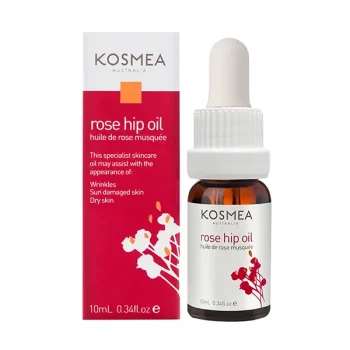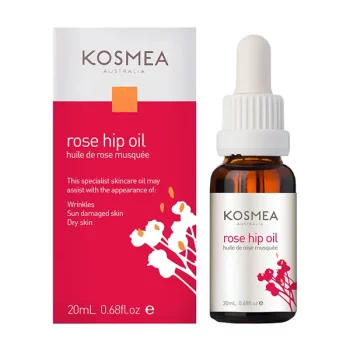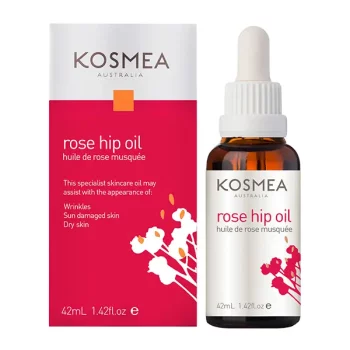7 tips to better care for your skin this winter
Chapped lips, rough and tight skin, maybe even scaly spots? Your skin changes with the seasons, and for some people this often means skin that can become dry and sensitive during winter.

It is just as important to protect your skin in winter as it is in summer.
When you think of skin protection, you may be thinking of hot, dry summers and shielding your skin from the sun’s potentially damaging UV rays. Did you know that it is just as important to protect your skin in winter as it is in summer, for different reasons?
Here are our 7 tips for healthy skin in winter, so that you can sail into springtime looking your very best.
1. Maintain the moisture content in your skin
Just because it’s cold and raining doesn’t mean your skin needs less moisture. During winter, it often needs more moisture. Cold temperatures and lower humidity levels in the atmosphere will take moisture away from your skin and make it drier.
So it’s important to keep your moisture levels up by making sure to moisturise morning and evening. It’s also a good time to introduce a facial oil to add along with your moisturisers. You can find out more information about facial oils here.
Related reading: 5 reasons why facial oils should be part of your daily skincare routine


2. Shorten shower and bath time
As nice as it is to have a long hot shower in winter, it’s not great for your skin. Hot water strips the skin of moisture and if you have a tendency toward dry skin in winter, then a hot shower will exacerbate the problem.
A 5-10 minute warm shower in winter will go easier on your skin, and make sure to use a rich moisturiser afterwards. If you enjoy luxuriating in the bath in winter, then add a few drops of your favourite essential oil to the bathtub to provide that extra moisture that your skin will love.
3. Keep the internal temperature at home moderate
We all like a warm home during winter and it’s easy to just crank up the temperature on cold blustery days. But your skin suffers for it! The heat will dry out the air at home and draw moisture from your skin. The ideal temperature at home is 20-21 degrees. This is much better for your skin and it won’t get too stuffy and uncomfortable indoors.


4. Pat your skin dry
Patting or blotting your skin dry after a shower will help to retain moisture. Vigorously drying off with a towel might be good for exfoliation but it also removes the some of the protection that is locking in moisture. We recommend patting your skin dry and then following with a moisturiser or facial oil immediately afterwards when the skin is most absorbent. This will help to lock in the moisture you really need in winter.
5. Keep using SPF
Sun damage is caused by ultraviolet (UV) radiation, not the temperature. UV levels can be just as high on a cool and cloudy day as they can be on a warm and sunny day. Always check the UV index every day and if it’s above 3, then it’s a good idea to wear SPF creams.


6. Drink water
Staying hydrated is also just as important in winter as it is in summer. By drinking enough water, you’re moisturising from the inside out and ensuring that all your organs receive adequate hydration to do their work most efficiently. And since your skin is the largest organ in your body. Enough water means it will remain hydrated and supple during cold winter months.
Related reading: 5 teas for glowing skin
7. Increase moisture at bedtime
By adding facial oils or a richer moisturiser to your bedtime routine, you’ll give your skin the opportunity to restore the protective moisture barrier, while you’re at rest. Winter is the ideal time to introduce a facial oil such as Rosehip Oil into your skincare routine.
Rosehip Oil’s two most potent ingredients are Vitamin A and essential fatty acids Omega 3 and 6. Essential fatty acids are responsible for skin renewal, repairing damaged skin and reducing inflammation. Vitamin A stimulates collagen production, boosting the skin’s resilience and quality. Research has shown that our skin readily absorbs Vitamin A when applied topically.
These two ingredients working together help to reduce the appearance of fine lines, wrinkles and scarring (old and new scars), alleviate the effects of eczema, psoriasis, dermatitis and rosacea, and soothe dry and sensitive skin.

Related Article: Can you use Rosehip Oil every day? Kosmea Certified Organic Rosehip Oil
Certified Organic Rosehip Oil – available in 3 sizes
Kosmea’s Skincare Routines for Every Skin Type
We’ve developed optimal skincare routines for each skin type for both the morning and evening, as well as for cold and windy days, or for skin under artificial lights all day.
You can find them here:






